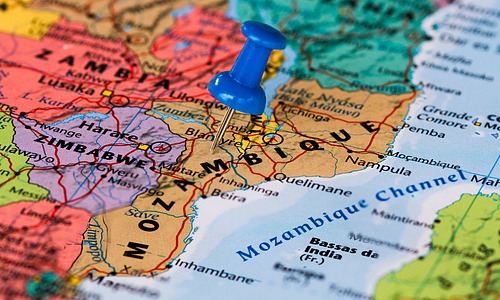Mozambique: Government reduces fuel prices
Mozambique’s internal public debt service will cost 19.7 billion, six times more than allocation for social protection programmes – A Verdade

The proposed State Budget for next year provides an unprecedented amount for the internal public debt service: 19.7 billion meticais to service the state’s domestic debt of more than 100 billion meticais. This amount, which is intended to pay interest to holders of Mozambican treasury bonds—mostly commercial banks—is almost double the total allocation to the provinces of Nampula and Zambézia, more than twice the budget for water and public works, and six times more than the allocation for all social protection programmes in Mozambique in 2018.
Since the beginning of the year, @Verdade has reported on the government rampantly increasing domestic public debt by issuing treasury bills and bonds, and through direct loans by the central bank to state.
State internal debt, which between 2011 and 2015 had grown from 22.3 million to 69.2 million meticais, has skyrocketed by more than 1000% since the beginning of Filipe Nyusi’s rule, and amounted to 100.4 thousand million meticais on 20 October 2017.
Also Read: Mozambique’s parliamentary benches differ over 2018 budget
To meet the repayments of this debt in the state budget proposal for 2018, 19.7 billion meticais are earmarked, an amount higher than that forecast for the service of external public debt (13.4 billion meticais).
Comparing budget allocations for other sectors that are fundamental to the life of Mozambicans, the amount allocated to internal debt service exceeds the budget foreseen for Nampula province, for which Nyusi’s government only registered 12.5 billion, and also exceeds all money planned for the province of Zambézia, for which 12.3 billion meticais were foreseen.
The cost of the internal public debt service is still higher than the budget for the water and public works sector, which in 2018 is expected to receive only 7.1 billion meticais, and is six times higher than the allocation for all social protection programmes for Mozambicans, which will have only 3.6 billion meticais.
It should be recalled that recourse to internal indebtedness has increased since the discovery of the illegal debts of Proindicus and MAM that led to the suspension of the International Monetary Fund programme.
Also Read: Assembly passes first reading of 2018 budget
Mozambique to register economic growth below 4% to 2020, default limits investment – UN
Internal and external public debt expenses exceed any health allocation in 2018
It is paradoxical that a large part of the 19.7 billion meticais, the largest allocation for the internal public debt service ever, will be used not only for the payment of interest but mainly to pay the treasury bills and bonds which the government sold to investors.

The concern is that the spiral of internal indebtedness will not stop in 2018, the Nyusi’s government plans to continue to use internal credit to obtain another 19.2 billion meticais.
“What happens is a kind of Ponzi scheme, when debt is repaid with new debt,” explains economist Fernanda Massarongo Chivulele, who a few years ago studied the internal debt of the Mozambican state with reference to the fraudulent pyramid scheme that bears the name of the Italian immigrant Charles Ponzi in which high guaranteed income is promised in exchange for an investment and is paid through money obtained from the entry of new participants, or with new investments by members who are already part of the pyramid.
Also Read: Renamo “misreads” the budget yet again – AIM
Even more serious is that the internal public debt is mainly held by commercial banks. Banco Comerciale de Investimentos has about 16%, Standard Bank has approximately 13% and Millennium Bim has another 10%. So the 19.7 billion meticais is more money that is not allocated to priority sectors or to finance the productive sector.
In addition, the internal and external public debt service, which totals 33.1 billion meticais in the state budget proposal for 2018, surpasses any planned allocation for health, currently only 26.6 billion meticais.
By Adérito Caldeira













Leave a Reply
Be the First to Comment!
You must be logged in to post a comment.
You must be logged in to post a comment.